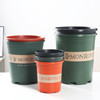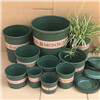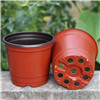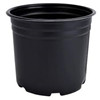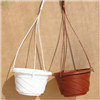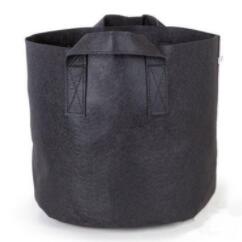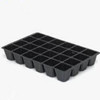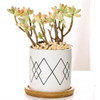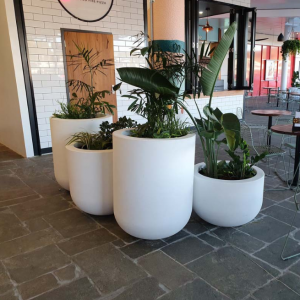Introduction: In recent years, non-woven flower pots have gained popularity as an eco-friendly and sustainable alternative to traditional plastic or ceramic containers. These innovative pots are made from biodegradable materials, offering numerous benefits for both plants and the environment. In this blog, we explore the advantages of non-woven flower pots and their contribution to sustainable gardening practices.
- Biodegradability and Eco-Friendliness: Non-woven flower pots are typically made from biodegradable materials such as bamboo fibers, rice husks, or coconut coir. This eco-friendly composition ensures that these pots break down naturally over time, reducing plastic waste and its harmful impact on the environment.
- Air Pruning and Root Health: One of the significant benefits of non-woven flower pots is their ability to promote air pruning. As the plant’s roots grow and reach the pot’s sides, they come into contact with the air, stimulating the process of air pruning. This encourages the development of a more robust and healthier root system, leading to improved plant growth and nutrient absorption.
- Excellent Water Permeability: Non-woven flower pots have excellent water permeability, allowing excess water to drain effectively. This feature prevents overwatering and helps maintain the right moisture level for plant roots, reducing the risk of root rot and other water-related issues.
- Lightweight and Portable: Compared to traditional ceramic or clay pots, non-woven flower pots are lightweight and easy to move around. This portability makes it convenient for gardeners to rearrange their plant displays or relocate plants to more suitable growing conditions as needed.
- Suitable for Indoor and Outdoor Use: Non-woven flower pots are versatile and suitable for both indoor and outdoor gardening. Their breathable nature and biodegradability make them excellent choices for growing various plants, from houseplants to vegetables and herbs.
Conclusion: Non-woven flower pots present an innovative and sustainable solution for modern gardening practices. Their biodegradability, air pruning benefits, water permeability, lightweight nature, and adaptability for indoor and outdoor use make them a favorable choice for eco-conscious gardeners. Embracing non-woven flower pots not only benefits plant growth but also contributes to reducing plastic waste and promoting a greener and more sustainable environment.


